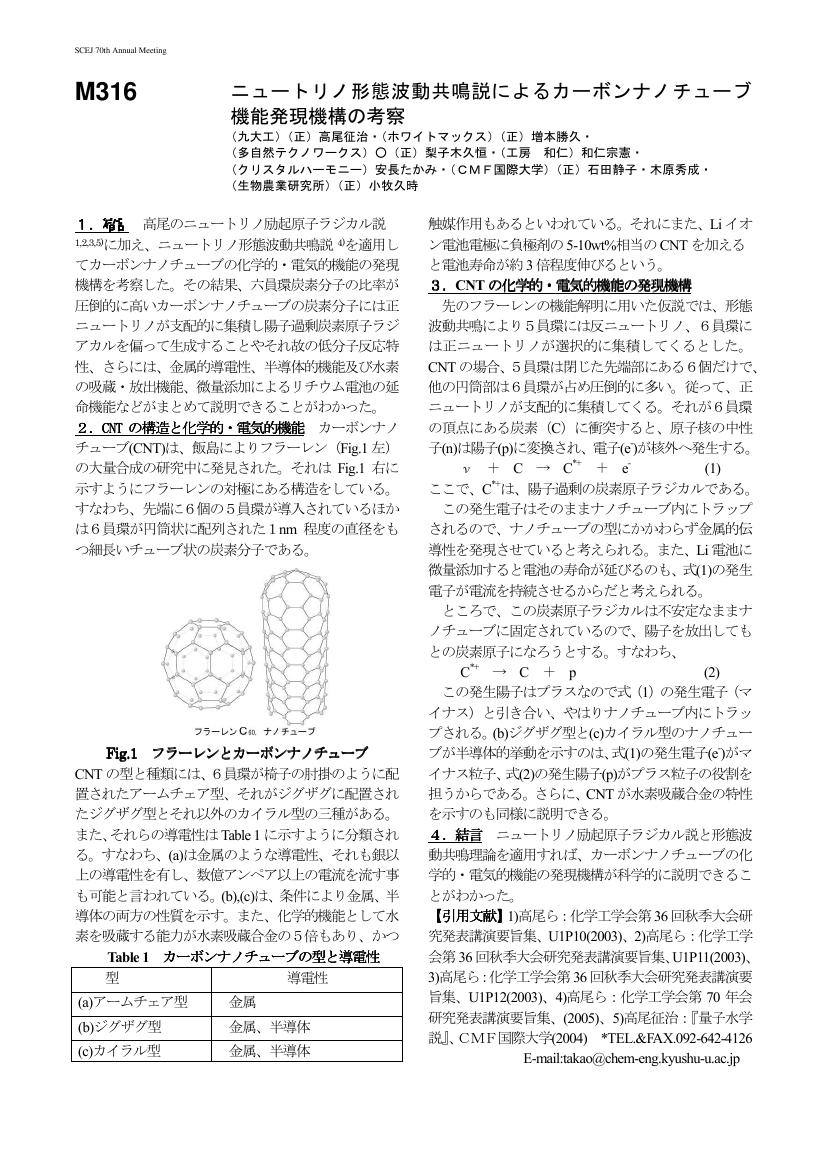2 0 0 0 OA ニュートリノ形態波動共鳴説によるフラーレン機能発現機構の考察
本研究では、(1)戦前から戦中にかけてのアメリカの文化外交政策に着目し、(2)アメリカ図書館協会(ALA)やロックフェラー財団が占領政策の背後でいろいろな働きかけをしていたこと、(3)アメリカ図書館学がこの時期に制度化され社会的に一定の位置づけを獲得していたこと、の3点を新しい視点として、在米の資料の発掘をしながら、占領期の図書館政策についての新しい研究領域の開拓を行ったものである。まず、3年間で、イリノイ大学、ミシガン大学、カリフォルニア大学、メリーランド大学、国立公文書館、議会図書館などにおいて資料調査を行い、多数の未紹介の1次資料を発掘し、コピーして持ち帰った。これらの資料のうちかなりの部分を整理して、目録化して報告書に掲載することができた。これらの資料分析の結果、わが国の戦後の図書館政策がアメリカ政府の戦中/戦後の国際的な文化戦略の影響下にあったGHQ/SCAPの教育文化政策に位置づけられることが明らかになった。米国の戦時体制において連邦政府情報一元化政策がとられるなかで、図書館界においても全米的なプログラムが重視された。その延長で戦後の国際的な教育文化戦略においてユネスコがつくられるが、それにも図書館関係者が深く関与する。こうした国際情勢のなかで、陸軍省とアメリカ図書館協会が背後からバックアップしながら、GHQ/SCAPの図書館政策が展開されようとしていた。しかしながら、冷戦体制の顕現化、教育文化の再編より経済的な復興を重視する政策により、制度的な改革は中途半端なものに終わったということができる
2 0 0 0 OA 大正デモクラシーと明治文化研究会 : 日本国憲法をうんだ言論の力
- 著者
- 原 秀成
- 出版者
- 国際日本文化研究センター
- 雑誌
- 日本研究
- 巻号頁・発行日
- vol.21, pp.213-252, 2000-03-31
本稿では一九二〇年代からのデモクラシーを求める活動から、第二次世界大戦後へのいくつかの系譜をたどった。
1 0 0 0 OA 近代日本における出版の自由と著作権
- 著者
- 原 秀成
- 出版者
- 日本出版学会
- 雑誌
- 出版研究 (ISSN:03853659)
- 巻号頁・発行日
- vol.27, pp.3-59, 1997-03-20 (Released:2020-03-31)
- 参考文献数
- 54
- 被引用文献数
- 3
This article deals with the legislation on copyright and on the press in Japan from a historical viewpoint. The following findings are described: (1) Under the influence of the British Copyright Act of 1842, the Japanese Press Ordinance of 1869 and that of 1875 were made law. (2) The later Japanese Press Ordinance of 1887 was modeled on the German Press Act of 1874, and limited the freedom of the press in the Constitution of the Empire of Japan of 1889. At the same time in 1887, three ordinances on copyright were modeled mainly after the German Act of an Author's Rights of 1870, and enabled the Japanese government to join the Berne Convention of 1886. (3) These Japanese ordinances inherited the common practice of publishers' guilds from the eighteenth century, and tended to work as a means of the monopoly of publishing houses, rather than to protect the rights of an author. (4) This legal system caused the governmental censorship and the control of the press until the end of World War II.
1 0 0 0 OA ニュートリノ形態波動共鳴説によるカーボンナノチューブ機能発現機構の考察
- 著者
- 高尾 征治 増本 勝久 梨子木 久恒 和仁 宗憲 安長 たかみ 石田 静子 木原 秀成 小牧 久時
- 出版者
- 公益社団法人 化学工学会
- 雑誌
- 化学工学会 研究発表講演要旨集 化学工学会第70年会
- 巻号頁・発行日
- pp.578, 2005 (Released:2005-08-30)
本研究では、1945年から1990年までの『朝日新聞』の投書欄「声」欄を分析の素材として、投書を寄せた人・投書を掲載された人の年齢による分散の長期的な変化を調査し、もって現代の新聞の高齢化社会に対する対応の解明を試みた。そのために第一に、「今月の投書から」「ことしの投書から」など朝日新聞社の発表した投書応募者の年齢・性別・職業など属性別の投書応募件数を、縮刷版を用いて集計をした。同時に、投稿規定を調べ新聞社の投書応募の条件の変化を調査した。第二に、1960年から1990年までの国勢調査のある5年ごとに、掲載された投書の全数調査をした。調査対象項目は、投書欄に掲載された投書者の年齢・性別・職業であり、これを5歳ごとに区分けし標準コ-ホ-ト表にのせた。この集計結果を、『人口動態統計』の「年次・性・年齢別人口」で割った値によりコ-ホ-ト分析を行った。第三に、朝日新聞社が行った読者分析、新聞紙面に掲載されなかった投書についての資料、高齢化社会についての調査報告などと照合し、調査結果を補強した。これらの結果、次のことを明らかにしえた。(1)60歳代の投書応募者、投書掲載者の単位人口あたりの件数は1960年から1990年に至まであまり変化していない。投書欄における掲載数の増加は、主に高齢者の人口増加を原因とするものである。(2)これとは対照的に、1990年における20歳代の単位人口あたりの投書応募者数は、1965年におけるそれの約半数に減少している。(3)新聞社は、1970年頃、20歳代の投書掲載を抑制し60歳代の投書を優遇して掲載していたが、1990年には年齢により掲載を特に操作している形跡はなく、特別なテーマを投稿規定で設定してもいない。これらの結果から、新聞社は1990年には高齢者からの投書という情報行動の増加を容認し、生涯教育の一つの場としての機能を自認しているという解釈が成り立つ。
1 0 0 0 出版物納入制度の受容と変容--権利から義務の体系へ
- 著者
- 原 秀成
- 出版者
- 日本出版学会
- 雑誌
- 出版研究 (ISSN:03853659)
- 巻号頁・発行日
- no.31, pp.145-159, 2000

